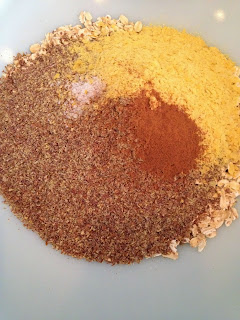Breastfeeding is hard work. It can be exhausting for moms, frustrating for babies and incredibly beautiful at the same time. In addition to a variety of physical benefits for moms, including helping melt away pounds postpartum, it also helps facilitate a deep level of bonding between mother and baby. For a small number of women, breastfeeding isn't an option because of health reasons or other physical limitations and for others it becomes too difficult in the face of managing so many other demands of caring for a new baby. There is no nutrition that is equal to breastmilk, since it provides the perfect nutrition for your baby, plus passes along some immunity and introduces good bacteria in a way that formula does not. That said, formula is the next best choice and the most important thing is to feed your baby the best you can and give him plenty of love and attention.

One frequent concern and challenge is whether or not mom is making enough milk to support a healthy baby. In general, if baby is growing well and having regular wet and dirty diapers, there is no need to worry about volume. Here are some keys to help support adequate milk production:
- Eat enough calories. It takes as much as 800 calories to produce breastmilk (which is why many breastfeeding mommas experience great weight loss). Don't worry about weight loss, especially during the early months of breastfeeding. Eat enough to support yourself and the milk that your baby needs. Eating too few calories could result in low milk production.
- Drink plenty of water. Being properly hydrated during pregnancy was essential - nothing's changed. Postpartum, you will be losing a lot of fluid as your body sheds the excess fluid it needed to support baby in utero, plus now you will be losing fluids as you feed junior. Being dehydrated may contribute to low milk production.
- Discuss any medications or supplements with your physician or midwife to determine their safety during breastfeeding. Some substances can pass through breastmilk to your baby, so be sure you discuss it with her before trying any home remedy or supplement to increase your milk supply.
There are some out there who believe in the possibility that certain foods can support lactation and maybe they do, but I could find much research to support it. Oft cited foods include oatmeal, brewer's yeast, walnuts, and flax meal - really nutritious foods without a doubt. Oatmeal provides slowly digested carbohydrates and fiber, which help provide energy to tired mommas and promote, er...regularity. Brewer's yeast is a source of B vitamins, also important for energy production. Meanwhile, walnuts and flax are good sources of omega-3 fatty acids to help fight inflammation and which some studies have linked to lower incidences of postpartum depression. So whether or not these foods make more milk, they are certainly foods worth eating. Here's my favorite way to bring these foods together - in a cookie! Whether your breastfeeding or not, these delicious cookies (which are almost like granola bars) are good stuff.
Yield: 28 cookies
- 2 c whole rolled oats
- 1/2c flax meal
- 2 heaping Tbs nutritional/brewers yeast
- 1tsp salt
- 1Tbs cinnamon
- 1/4c milk
- 1 egg
- 2Tbs olive oil
- 3Tbs molasses
- 1/4c brown sugar
- 1/4c raisins
- 1/4c chopped nuts
Mix all of these dry ingredients, oats through cinnamon, together in a large bowl and set aside. Mix all wet ingredients and sugar together in a small bowl and add to dry ingredients, stirring just until everything is moistened. Add raisins and nuts and fold into mixture.
Portion cookies by large tablespoons on prepared sheet pans. Bake cookies at 350 degrees for 15-20 minutes or until golden. Enjoy with your favorite tea or milk.





No comments:
Post a Comment